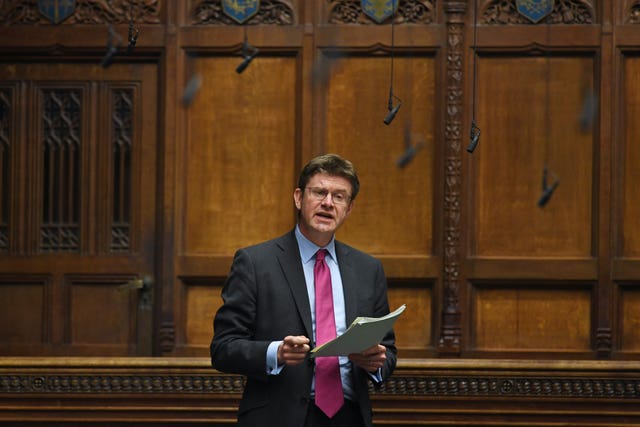Ministers should be open about the impact of the lockdown and share their analysis of the likely effects on people’s jobs and wellbeing, MPs have urged.
It comes after the House of Commons this week voted overwhelmingly to back another lockdown with the latest draconian restrictions set to be in place for at least seven weeks.
Under the measures, people are only permitted to leave their home for one form of exercise per day unless they have a valid reason, such as not being able to work from home, to care for someone or to shop for essential goods.
Schools across the UK have also been shut to most pupils as part of the strict measures designed to control the spread of coronavirus.
In a report published by the Science and Technology Committee on Friday, the Government has been called to be more transparent about the analysis that it considers when making decisions about the lockdown.
The membership of key scientific advisory bodies should also be in the public domain, according to the panel of MPs.
The committee found in its 90-page report that, while the membership of the likes of the Scientific Advisory Group for Emergencies (Sage) has been declared since the pandemic began, not enough is known about new bodies like the Joint Biosecurity Centre which informs ministers about virus outbreaks.
Committee chair Greg Clark MP praised the “outstanding service” provided by scientists during the pandemic while calling for ministers to go further in their transparency.

The former cabinet minister said: “Sage began with too little transparency and has improved by publishing its membership, minutes and papers. Similar openness should apply to new bodies like the Joint Biosecurity Centre.
“There is nothing to fear from openness. The more transparent data, analysis and conclusions drawn are, the better it is for policy making and for public confidence.
“The Government should disclose the assessment it makes of the impact of measures it is considering on livelihoods, education and wellbeing as it now does with epidemiological analysis.
“This will be especially important when ministers eventually weigh choices of when it is appropriate to begin to lift the current restrictions.”
The report, The UK Response To Covid-19: Use of Scientific Advice, said the advice on the type of measures required to get a grip on infections, along with those behind it, had been “opaque”.
“Measures taken to contain the pandemic had wider and indirect effects such as on people’s livelihoods, educational progress and mental and emotional wellbeing,” the cross-party group of MPs said.
“The assessment of these wider impacts was – and remains – much less transparent than the epidemiological analysis; the people conducting the analysis and giving advice are less visible than epidemiological modelling advisers; and its role in decision making opaque.”
The committee praised the use of scientific evidence and the quality of advice on offer but said there were lessons to be learnt from the UK’s performance in the first wave, especially over why more was not learnt from other countries’ experiences.
The UK emerged from 2020 with one of the highest Covid-19 death rates in Europe.
MPs also said that the increase in testing capacity that took place from April, when it was promised to have capacity to test 100,000 people per day, was largely driven by Health Secretary Matt Hancock rather than “following a scientifically-based plan of what capacity was needed”.
The committee is due to hold an evidence session on vaccine rollout on Wednesday January 13.




Comments: Our rules
We want our comments to be a lively and valuable part of our community - a place where readers can debate and engage with the most important local issues. The ability to comment on our stories is a privilege, not a right, however, and that privilege may be withdrawn if it is abused or misused.
Please report any comments that break our rules.
Read the rules here